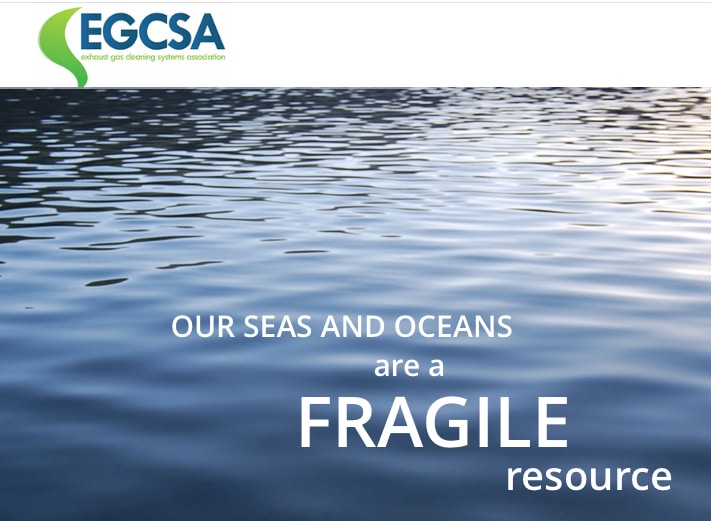The Exhaust Gas Cleaning Systems Association (EGCSA) has welcomed the findings of Netherlands research institute CE Delft into availability of low sulphur marine fuel by 2020 to be issued on 15 July 2016. The findings of the CE Delft report clearly state that there will be sufficient refining capacity by 2020 to produce compliant marine fuels as demand from other sectors for distillates has slowed.
EGCSA director Donald Gregory said, “the report of CE Delft commissioned by the International Maritime Organisation (IMO) plainly shows that availability of marine fuels is not a reason for the IMO to delay introduction of the 2020 global sulphur emissions limit. The independent assessment comes to the conclusion that there will be sufficient low sulphur marine fuel available by 2020 and that any regional shortcoming can be met by interregional transport.”
The IMO had appointed CE Delft to assess global low sulphur fuel supply and demand, fuel oil market trends and any other relevant issues as required under MARPOL Annex VI in the run-up to a ruling on the adoption of a global limit on fuel oil sulphur emissions in October 2016. The study was intended to evaluate the likely availability of compliant fuel, rather than consider fuel purchase price, as the critical determining factor when deciding whether or not to introduce the global 2020 sulphur emission limit.
Unease over fuel price fluctuations and unwillingness to invest make some parties want to put off introduction of sulphur emission limits until 1 January 2025. However, the EGCSA and its member companies are concerned that any delay in the introduction of the 2020 sulphur emissions limit will allow the shipping industry to continue to cause health problems and damage to the environment from harmful SOx air emissions. The group is further worried that a delay will penalise early adopters of clean fuels and exhaust gas cleaning systems, as well as heighten insecurity and costs for the shipping industry as patchwork local ECAs pre-empt the delayed global one.
Gregory says, “Putting off a decision on the 2020 global sulphur cap until another MEPC meeting in 2017 or 2018 will end up affecting introduction of the cap and is likely to lead to a delay till 2025. Without a firm decision now, the shipping industry is set to suffer from uncertainty and the world from emissions that pose a risk to health and the environment.”
Given adequate supply of 0.5 per cent sulphur marine fuels and, as previously stated by the EGCSA, ample capacity for the manufacture and installation of marine scrubbers, the association believes ship owners have access to the necessary resources and systems to meet the 2020 limit cost-effectively.
Gregory continues, “A decision in principle on introduction of the 2020 cap at MEPC 70 in October 2016 is imperative to allow ship owners to mobilise investment and make strategic decisions in good time for 1 Jan 2020 implementation. In line with MARPOL Annex VI, Regulation 14, the CE Delft study assumes that ships will use fuels with a maximum sulphur content of 0.1 per cent in emissions control areas (ECAs) or for smaller engines, and fuels with a sulphur content of up to 0.5 per cent outside these areas from 1 January 2020. The study further presumes that roughly 3,800 ships will have installed exhaust gas cleaning systems (EGCS or scrubbers) by 2020. Capacity is expected to grow as new vendors entering the market increase the installation capability year on year from 2020. Our members have ample capacity to meet the numbers predicted in the CE Delft report with capacity rising with demand. The use of scrubbers will allow ship owners to be immune to low sulphur fuel market price volatility. ”

